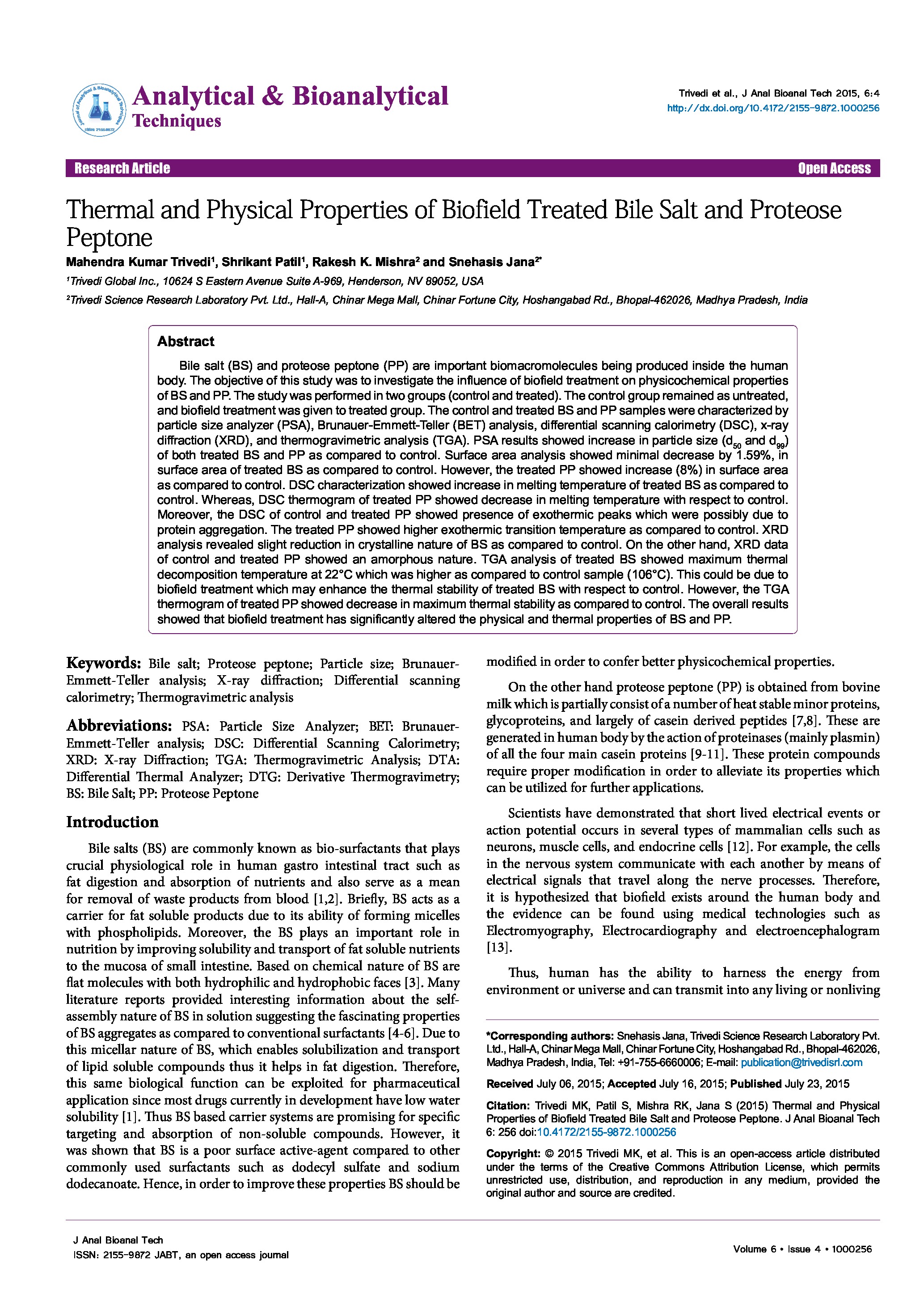Thermal and Physical Properties of Biofield Treated Bile Salt and Proteose Peptone
Affiliation
Trivedi Global Inc., Trivedi Science Research Laboratory Pvt. Ltd.
Main category
Natural Sciences (Biology)
Abstract
Bile salt (BS) and proteose peptone (PP) are important biomacromolecules being produced inside the human body. The objective of this study was to investigate the influence of biofield treatment on physicochemical properties of BS and PP. The study was performed in two groups (control and treated). The control group remained as untreated, and biofield treatment was given to treated group. The control and treated BS and PP samples were characterized by particle size analyzer (PSA), Brunauer-Emmett-Teller (BET) analysis, differential scanning calorimetry (DSC), x-ray diffraction (XRD), and thermogravimetric analysis (TGA). PSA results showed increase in particle size (d50 and d99) of both treated BS and PP as compared to control. Surface area analysis showed minimal decrease by 1.59%, in surface area of treated BS as compared to control. However, the treated PP showed increase (8%) in surface area as compared to control. DSC characterization showed increase in melting temperature of treated BS as compared to control. Whereas, DSC thermogram of treated PP showed decrease in melting temperature with respect to control. Moreover, the DSC of control and treated PP showed presence of exothermic peaks which were possibly due to protein aggregation. The treated PP showed higher exothermic transition temperature as compared to control. XRD analysis revealed slight reduction in crystalline nature of BS as compared to control. On the other hand, XRD data of control and treated PP showed an amorphous nature. TGA analysis of treated BS showed maximum thermal decomposition temperature at 22°C which was higher as compared to control sample (106°C). This could be due to biofield treatment which may enhance the thermal stability of treated BS with respect to control. However, the TGA thermogram of treated PP showed decrease in maximum thermal stability as compared to control. The overall results showed that biofield treatment has significantly altered the physical and thermal properties of BS and PP.
DOI
10.18147/smn.2016/paper:87
Do you have problems viewing the pdf-file? Download paper
here
If the paper contains inappropriate content, please
report the paper. You will be redirected to the landing page.
